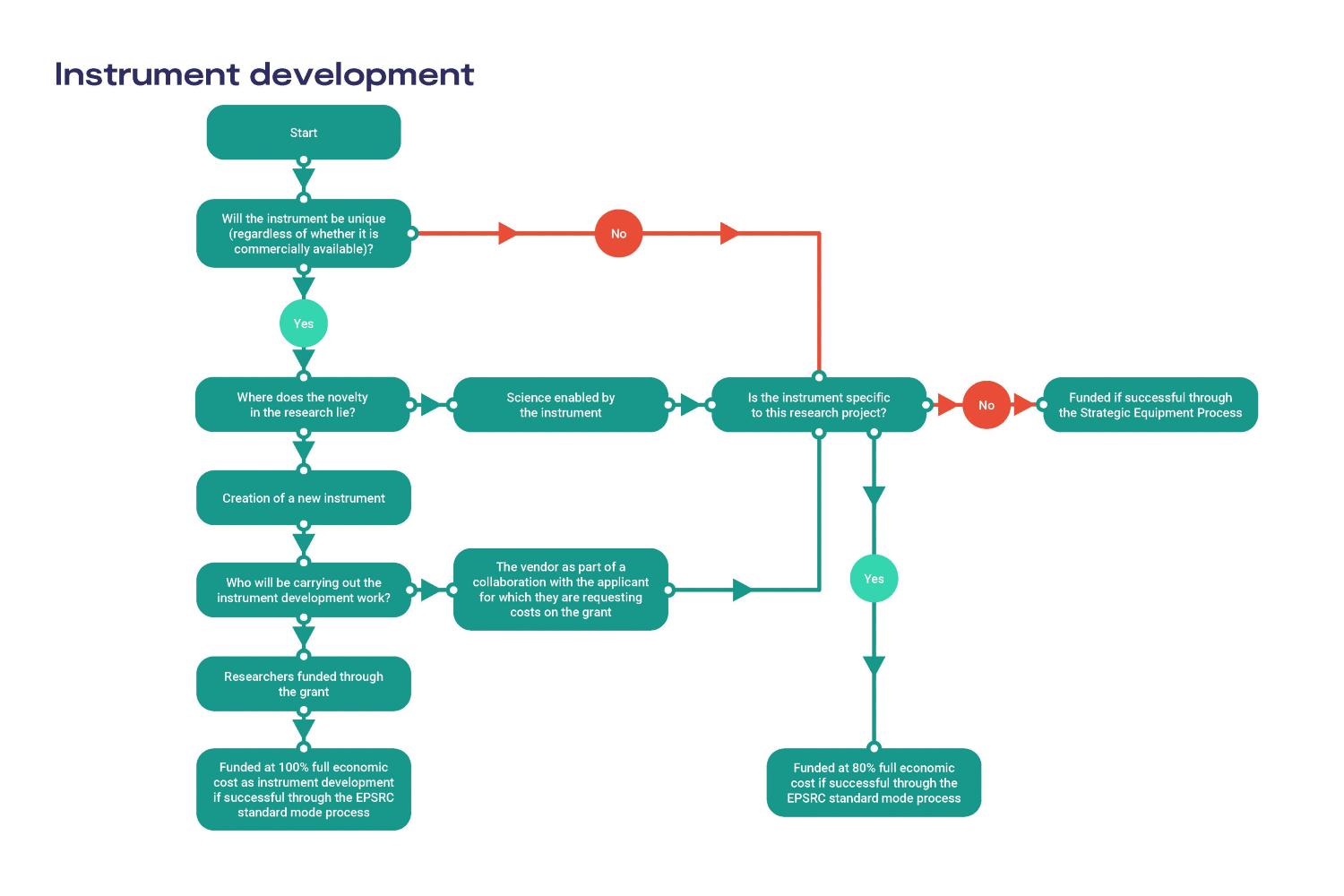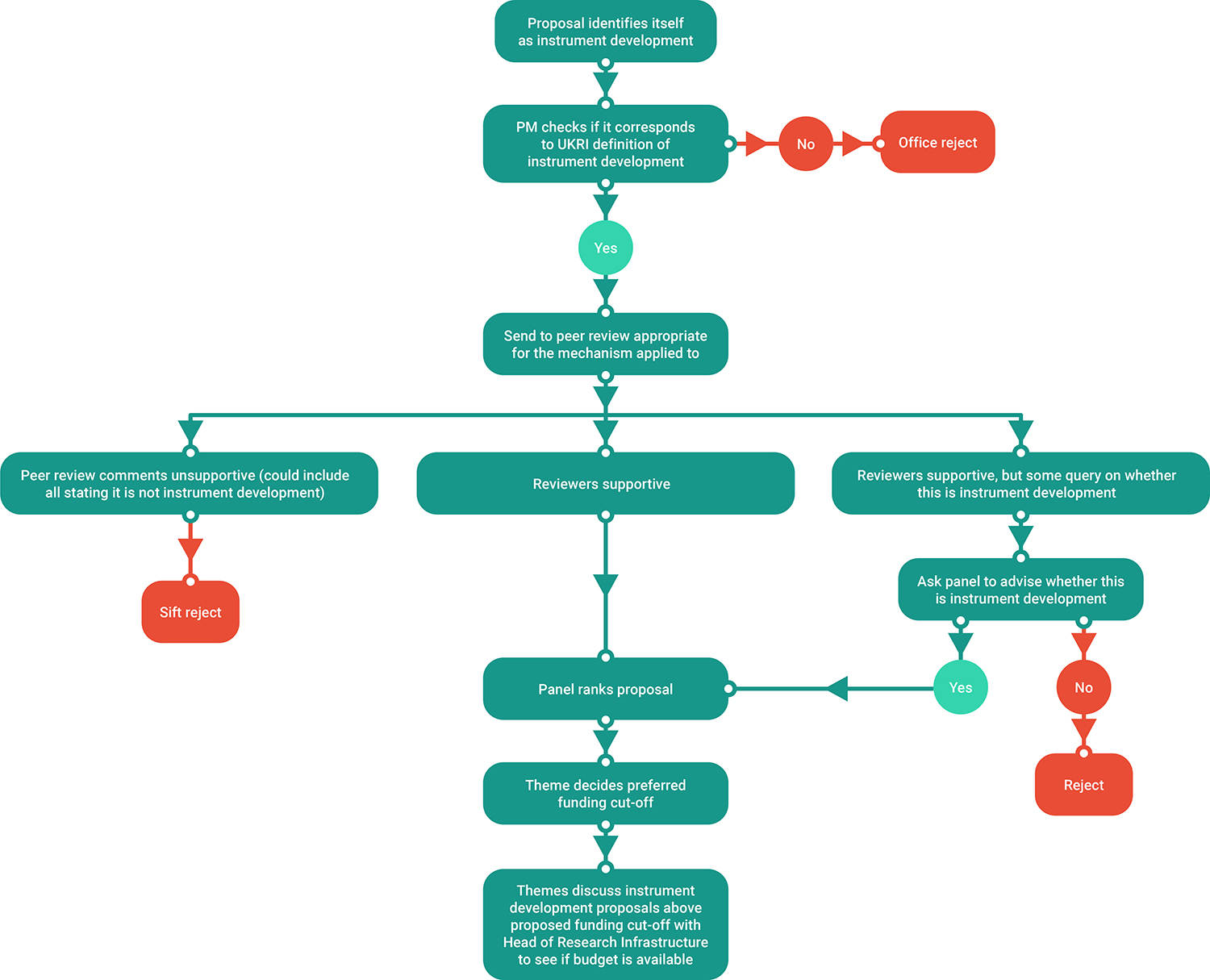A proposal will be classed as instrument development where it is wholly or mainly focussed on creating a novel instrument that will do either of the following to open up significant new scientific opportunities:
- enable research capability not available using any existing instrument
- substantially improve research capability beyond what currently exists.
Instrument development can occur in a variety of ways. It might involve the construction of a wholly new instrument from its basic components or it might involve the substantial modification of an existing instrument. Finally, it might involve the integration of two or more existing instruments into a new combined one. In this latter case the proposed integration would need to be technically non-trivial and lead to a capability significantly beyond that of using the component instruments independently.
Find out how instrument development fits into EPSRC’s approach to equipment funding.
The following flowchart will help you decide if your project will qualify for the instrument development scheme.
View a PDF version of the process flowchart.
Equipment for instrument development should be integral to a research proposal and will not need to be co-funded by another partner or go through the strategic equipment process.
Items of equipment for instrument development will be funded at 100% full economic costing, although EPSRC reserves the right to request institutional contributions in exceptional circumstances.
Applicants should note that the instrument development funding applies to the individual pieces of equipment that are being developed. Other equipment requested on the proposal not related to the instrument development will be subject to EPSRC’s standard rules for equipment.
How proposals are assessed

Firstly in the assessment process, the proposal needs to identify itself as ‘instrument development’. The PM then checks if it corresponds to UKRI definition of instrument development. If it does not, the proposal may be rejected. If the office accepts it, it will be sent for peer review appropriate to whatever mechanism is applied to.
The next step will be one of the following:
- reviewers are supportive
- peer reviewers are unsupportive (which could include all stating that it is not instrument development) – in this case the sift will reject it
- reviewers are generally supportive but have some queries about whether it is really instrument development – if they decide it’s not, the sift will reject it.
If the reviewers are supportive or the panel think it really is instrument development, the panel will rank the proposal. The theme will decide the preferred funding cut off. Proposals will either be funded or rejected.
Last updated: 12 May 2025


